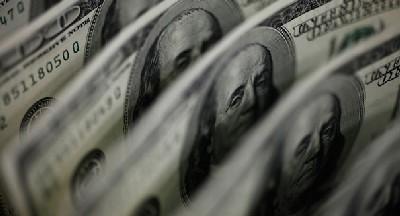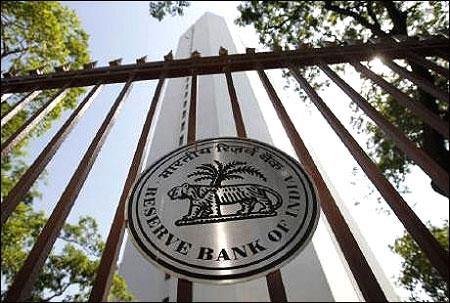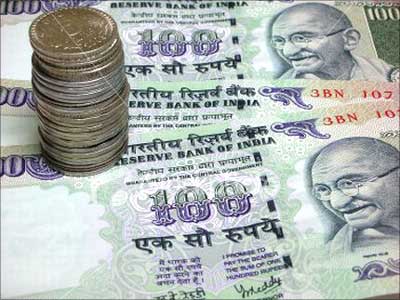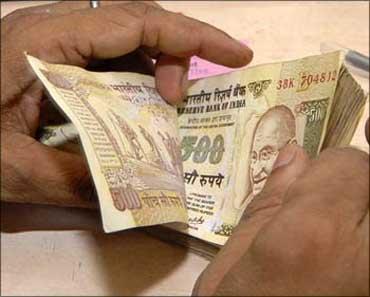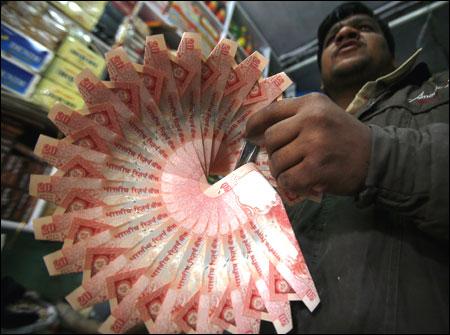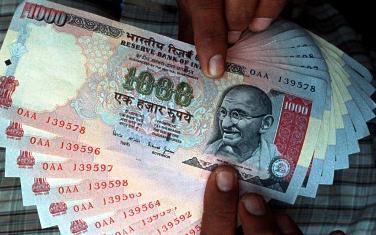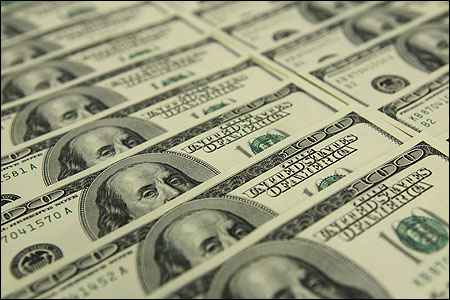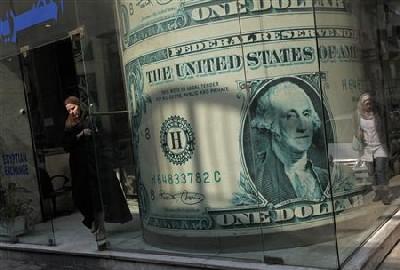 | « Back to article | Print this article |
India Inc milks weak rupee through overseas trades
In the last four months, during which the rupee fell 20 per cent, several big importers made a killing by trading in the non-deliverable forwards contract market abroad.
According to forex dealers, treasury heads and chief financial officers, many large Indian companies with global subsidiaries or associates have been using the arbitrage opportunity in forward premium rates between the overseas NDF market and India to make money.
This is quite in contrast to the popular perception that importers are hit badly when the rupee depreciates.
Click NEXT to read further. . .
India Inc milks weak rupee through overseas trades
But, it is not a free-for-all market.
"You need to have overseas presence and be able to secure large limits from banks. So, not all importers, and certainly not the smaller ones, have benefited from the NDF route," said a treasury head of a private bank.
Only large Indian multinationals can tap this route, but the number has been increasing.
The NDF market has prospered outside the Indian regulatory jurisdiction in Dubai, Bahrain, Hong Kong and Singapore.
The overall gains could not be quantified as few companies were willing to speak about it.
Click NEXT to read further. . .
India Inc milks weak rupee through overseas trades
But, industry players said the increase in forwards contracts in the NDF market led the banking regulator, the Reserve Bank of India, to take strong steps last week.
The RBI is believed to have blamed the popularity of the instrument as a key factor behind the depreciating rupee and accordingly moved to stop 'such speculative forces.'
The rupee an all-time low of 54.23 a dollar on December 13.
Two days later, the RBI came up with guidelines to curb speculative trades in the domestic foreign currency market.
The NDF market, an over-the-counter hub, was originally developed for emerging economies like India, with capital account controls, where currencies could not be delivered offshore.
Click NEXT to read further. . .
India Inc milks weak rupee through overseas trades
Here, a company abroad can speculate on the rupee, not possible in India.
The forward premium rate, under normal circumstances, is 5-10 paise higher than that in the Indian market, to cover for transaction costs.
But, in recent months, this difference shot up sharply.
For example, foreign exchange dealers said on November 27, the difference in the one-year forward premium rate in the NDF market and the Indian market was 110 paise.
That offered a perfect opportunity to benefit from rupee depreciation.
Click NEXT to read further. . .
India Inc milks weak rupee through overseas trades
However, companies have been keen to use this structure for shorter tenors like one-three months, in which the difference in one-month and three-month forward contract rates widened to 30 and 70 paise, respectively.
In simple terms, if an Indian company wanted to cover its $500 million imports when the rupee was trading at 52.60/$, it entered into a contract to buy dollars at 55.20/$ at a forward premium of Rs 2.60 at the end of the maturity.
Click NEXT to read further. . .
India Inc milks weak rupee through overseas trades
At the same time, it entered into a sale contract through an overseas subsidiary at a 110 paise differential from the buy premium, that is Rs 56.30/$ in the NDF market abroad.
At maturity, the importer would pay the bank Rs 55.20 for every dollar in India and receive Rs 56.30 a dollar through its subsidiary or associate abroad.
Hence, the importer makes a gross gain of Rs 55 crore (Rs 550 million) from these trades. Even after transaction charges of 20-25 paise, the net gain for the importer would be around Rs 45 crore (Rs 450 million).
Forex traders said the rise in popularity was reflected in the growing number of trades in the rupee in the NDF market.
Click NEXT to read further. . .
India Inc milks weak rupee through overseas trades
Bankers don't see the development as encouraging.
"The issue is of speculation. Some of the companies clearly don't remember the fundamentals of their businesses.
"They prefer to trade in foreign currency instead of manufacturing goods," said a banker, requesting anonymity due to the sensitivity of the issue.
Another senior official of a steel company hinted the sharp fall in the rupee was also because of a rise in speculation.
Click NEXT to read further. . .
India Inc milks weak rupee through overseas trades
"The rupee's move from 44 to 54 levels in a matter of three or four months was shocking. I don't think there is a huge amount of deterioration of the domestic economy that has triggered this type of fall," he said.
Independent analysts said the RBI was aware of the game but did not expect such aggression.
But, he added when the bigger boys started the trend, it influenced the overall sentiment among a wider set of players and that, in turn, clouded the outlook on the rupee.
